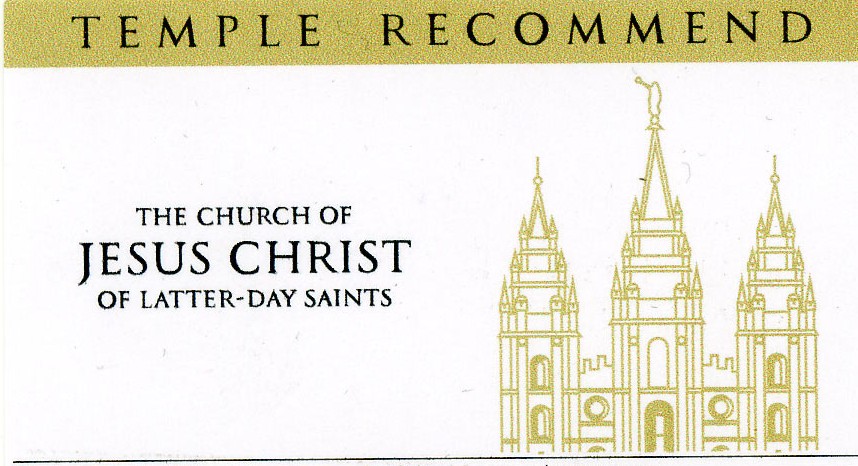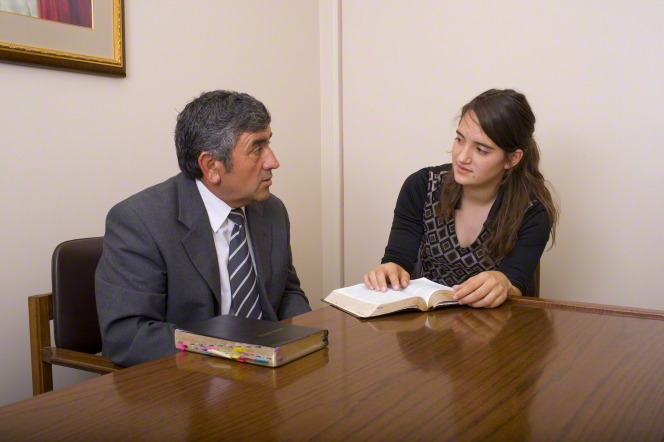Question
Gramps,
I have asked many questions of you. Some you answered, some not. This very important question affects a lot of people. I try so hard to follow D&C 119 and Section 83. A lot anonymously (not bragging). But my inspiration leads me to think the Church could help us prepare. The leaders, out of necessity, are becoming administers to business. I consider meeting my obligation to Sec.119 by directly (anonymously) paying tithes to our very old, special needs people
I pay full Tithe to Church. It spends millions on property, buildings, businesses, investments. (some of bad repute). Church says prepare economic crisis. Church could use millions on farms, ground, store houses stuffed with needful stuff. In my area good members are poor. I pay more anonymously. I feel I need to pay more directly to the poor and not the church. Will God recognize this as my Tithe? God will know. Church will not know, is that important?
Jon
Answer
Jon,
I think you’re skipping verse 1 in section 119.
“Verily, thus saith the Lord, I require all their surplus property to be put into the hands of the bishop of my church in Zion,”
It is a mistaken approach to personally interpret scripture in opposition to the teachings of those anointed to lead God’s Church in these latter-days. The proper way to pay tithing has been clearly established. Paying it in some other way and then calling it tithing is inappropriate and will not count as tithing. Yes, credit given where credit due, if we help the poor it is good. It is, in fact commanded of us that we do so if able. But this is a separate command from tithing. Tithing is to be paid to the bishop – 10% of our increase. That is the law.
Concerning the leaders becoming administrators to business, I have to ask in response, what’s the problem with that? Certainly you must understand that as the Church has grown into the size it is, that the administrative side of it would also have need to grow as well.
That being said, I reject the implication that business is all, or even primarily, the concern of our leaders. A simple look at President Monson’s travel schedule over the past years indicates a very different story. Most of his time is spent in temple dedications, missionary visits, and conferences of various sorts. This would be true for any of the general leaders. They are engaged in the Lord’s work. The fact that a portion of that work is to manage the temporal affairs of the Church does not take away from anything.
And I ask you as well, who are we to determine how the Lord will spend His funds? Are we called to make that determination? Do we have the authority or spiritual link to claim superior knowledge and understanding concerning the Lord’s will as to His kingdom on the earth.
There has been a fair amount of controversy, for example, in the recent past over the downtown Salt Lake shopping mall. Many accusations have sprung up around the web against the Church and the use of its funds. But I have to wonder, why is consideration never given to the idea that it was the Lord’s will. Somehow many of us seem to think we know better than the prophet, better than the apostles. Somehow we think ourselves more enlightened, more holy, and more in tune with God’s true will.
But we are not. Let’s show a bit of faith here that God is leading His Church. Let’s trust and sustain those He has chosen to do so, in both their efforts on the spiritual front and the temporal front of God’s kingdom.
President Gordon B. Hinkley addressed the church’s involvement in commercial business in October of 1985
.
“Why is the Church in commercial business of any kind?
Essentially, the business assets which the Church has today are an outgrowth of enterprises which were begun in the pioneer era of our history when we were isolated in the valleys of the mountains of western America. For instance, a newspaper was then needed to keep the people advised of what was going on at home and abroad. The result was the Deseret News,which has been published now for 135 years. In the 1920s, government officials encouraged newspapers to set up radio stations. That was in the infancy of the broadcasting industry. One such radio station was established by the Deseret News here in Salt Lake City. From that has grown, by the natural process of development, holdings of a number of broadcasting properties.
As all of you will recognize, the ability and the facilities to communicate are among our great and constant needs. The ownership of these properties, both newspaper and broadcasting facilities, while they are operated as commercial entities, both directly and indirectly helps us in our responsibility to communicate our message and our point of view.
The Church was a pioneer in the sugar beet industry to help our farmers who needed a cash crop. One of our present properties is an outgrowth of that.
A beautiful hotel was constructed adjacent to Temple Square seventy-five years ago to provide a comfortable hostelry for visitors to this city.
Merchandising interests are an outgrowth of the cooperative movement which existed among our people in pioneer times. The Church has maintained certain real estate holdings, particularly those contiguous to Temple Square, to help preserve the beauty and the integrity of the core of the city. All of these commercial properties are tax-paying entities.
I repeat, the combined income from all of these business interests is relatively small and would not keep the work going for longer than a very brief period.
I should like to add, parenthetically for your information, that the living allowances given the General Authorities, which are very modest in comparison with executive compensation in industry and the professions, come from this business income and not from the tithing of the people.”
Gordon B. Hinkley also addressed the church’s downtown Salt Lake efforts in 1999:
“We have a real estate arm designed primarily to ensure the viability and the attractiveness of properties surrounding Temple Square. The core of many cities has deteriorated terribly. This cannot be said of Salt Lake City, although you may disagree as you try to get to the Tabernacle these days. We have tried to see that this part of the community is kept attractive and viable. With the beautiful grounds of Temple Square and the adjoining block to the east, we maintain gardens the equal of any in the world. This area will become even more attractive when the facility now being constructed on Main Street is completed and the large Conference Center to the north is finished.
Are these businesses operated for profit? Of course they are. They operate in a competitive world. They pay taxes. They are important citizens of this community. And they produce a profit, and from that profit comes the money which is used by The Church of Jesus Christ of Latter-day Saints Foundation to help with charitable and worthwhile causes in this community and abroad and, more particularly, to assist in the great humanitarian efforts of the Church.
These businesses contribute one-tenth of their profit to the Foundation. The Foundation cannot give to itself or to other Church entities, but it can use its resources to assist other causes, which it does so generously. Millions of dollars have been so distributed. Thousands upon thousands have been fed. They have been supplied with medicine. They have been supplied with clothing and shelter in times of great emergency and terrible distress. How grateful I feel for the beneficence of this great Foundation which derives its resources from the business interests of the Church.”
We also know that Joseph Smith in his role as leader of the Church planned cities and business, so it cannot be rightly viewed that the Church has corrupted some idealistic utopia that Joseph originally envisioned.
In fact the Lord addressed the Church’s need to deal with things “in the earth, and under the earth” in D&C 88:78-80
“Teach ye diligently and my grace shall attend you, that you may be instructed more perfectly in theory, in principle, in doctrine, in the law of the gospel, in all things that pertain unto the kingdom of God, that are expedient for you to understand;
“Of things both in heaven and in the earth, and under the earth; things which have been, things which are, things which must shortly come to pass; things which are at home, things which are abroad; the wars and the perplexities of the nations, and the judgments which are on the land; and a knowledge also of countries and of kingdoms—
“That ye may be prepared in all things when I shall send you again to magnify the calling whereunto I have called you, and the mission with which I have commissioned you.”
Your efforts to support the poor are commendable. But do not use one commandment to justify disobedience to another.
Gramps







